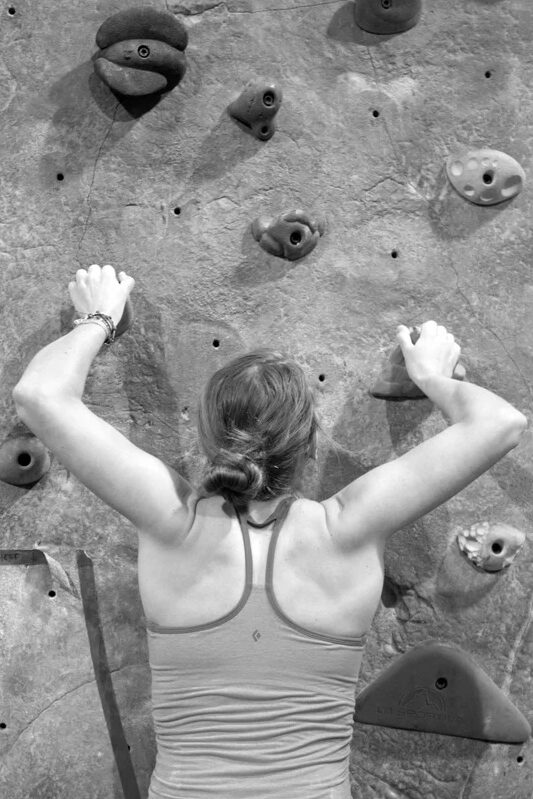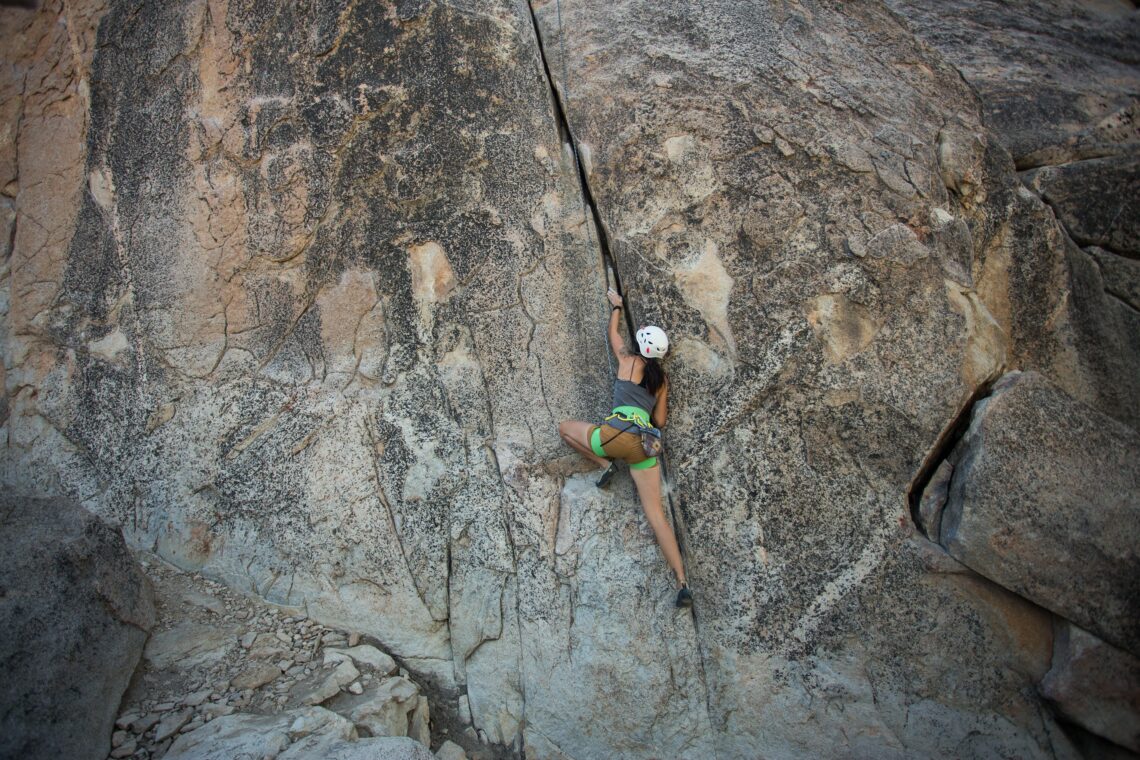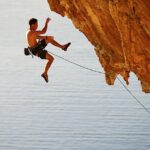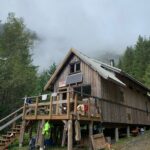Climbing is hard. Not only is it physically challenging, but it’s mentally tough to get myself out there when I’m feeling tired from school, working and other things in my life. This week, I only got to the climbing gym twice. Both times, I went in already quite exhausted and it very much affected my climbing performance. One thing that is important to do when climbing is to warm up. Warming up can mean to do some dynamic moves such as jumping jacks, lunges, squats, etc., but frankly, I’m usually too lazy to do that. My warm ups usually consist of one or two easy climbs, and then stretching my fingers and hands to ensure that injury doesn’t occur.
Pumped arms are the arch nemesis to a climber. This is when lactic acid in your arms builds up as a result of increased blood flow into your forearms, and less out, causing fatigue. Imagine your forearms throbbing and muscles tense. It’s an uncomfortable feeling, and no matter how much stoke you have to climb, if your arms are pumped, it’s hard to push past this stage. This will often happen when climbing a challenging route where it involves many moves that are heavy on the arm, such as overhangs. You can notice that a climber is pumped, when their elbows start lifting towards the sky like a chicken wing as a result of this lactate build up.

The chicken wings were a big part of my week, and it felt like a big stall to my progress towards lead climbing. I would climb one or two routes, and already my arms would feel pumped. This affected the rest of my climbing for that day as I would feel my muscles tense as soon as I started climbing. As I look back, I realize now that this just reflects the amount of patience that you need towards your own body. Climbing can be a lot of physical strain to the body, and being too hard on yourself can result in injuries – something that I have already experienced and do not want to go through again.
Some things that can help with limiting injuries and pumped arms include yoga (here is a YouTube playlist of my favourite yoga videos), hydration, and rest days. A lot of beginner climbers don’t realize the importance of rest days, especially over the excitement of how fun it is and how fast you progress – I surely didn’t. This resulted in an injured knee and a torn wrist ligament. I’ve realized that to climb, and to do any sport really, you have to be conscious of the choices you are making for your body, and to make to take care of it well.






